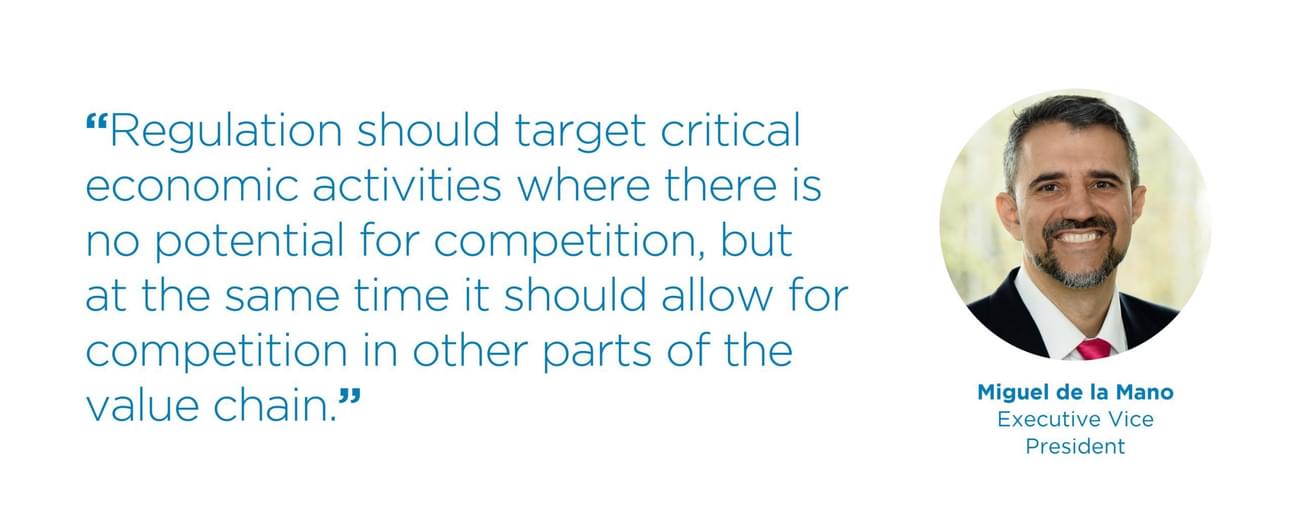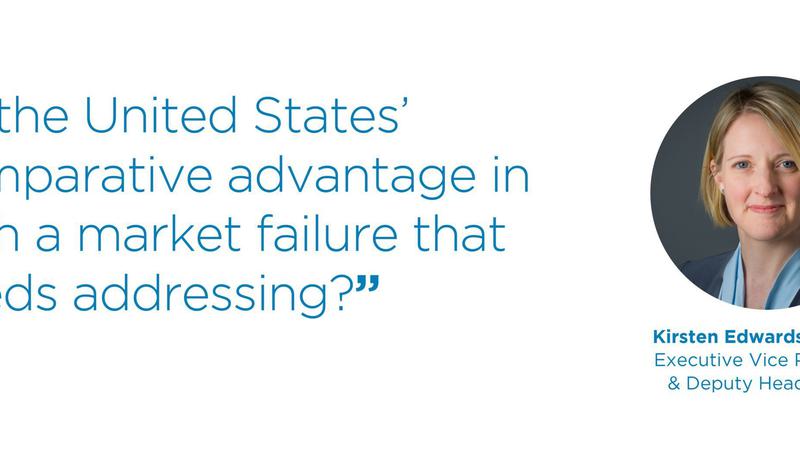The DMA: A Radical Change in the EU

Share
Miguel de la Mano joined a panel to discuss the major changes presented by the European Commission's proposed Digital Markets Act ("DMA") at the Innovation Economics conference. Panel chair, Richard Whish, Kings College London, framed the discussion around whether the DMA is a competition law project or a regulation initiative, taking a look at the gatekeeper’s designation process, the defenses that companies may put forward, and the market investigation tools.
Miguel started by saying that regulation should target critical economic activities where there is no potential for competition but at the same time, it should allow for competition in other parts of the value chain. Economic regulation should also serve as a surrogate for competition. Finally, the potential for competition should be assessed over a sufficiently long timeframe with milestones established to remove regulation and attract new entrants as soon as materially possible. This ensures that direct regulation is not self-perpetuating. Benefits of regulation from
correcting market failures should be weighed against the costs. For example, when investment is subject to significant ex-ante risk, it may be necessary to refrain from regulating.
Competition law as it stands today is flexible, as it allows firms the freedom to set terms and conditions within a potentially wide range of acceptable behavior. Going the opposite direction, a “one size fits all” approach to regulation is highly problematic. It risks restricting dynamic competition and deterring innovation in the digital sector, not only from the established platforms, those labeled as “gatekeepers,” but also from new entrants that need confidence that they will be able to recoup their sunk and their risk investments if they become successful.
It is of, course, correct to say that digital markets have some inherent traits which may raise competition concerns, especially with respect to the presence of network effects and markets that could be prone to tipping – but the burden should remain on regulators to demonstrate theories of harm. The DMA, as it considerably lightens this burden, seems to have important flaws.
First, gatekeeper status is not related to the concept of market dominance and is, therefore, not the result of a market-by-market assessment. Leveling the playing field is anticompetitive when the reason for its situation is that firms have invested and succeeded while taking risks.
Second, whereas EU antitrust rules are anchored on a consumer welfare standard, the proposed legislation sets no requirements, or analytical criteria for that matter, to determine how or to what extent the conduct at issue harms consumers, harms competition, or society. This brings the risk of type 1 and type 2 errors which could be severe.
Third and finally, many of the conducts and scope addressed by the DMA are already covered by existing competition rules. However, the number and the duration of the investigations in this area under Article 102 already suggest that the conducts that are being addressed are not necessarily harmful to competition or consumers and, due to their rigidity, the obligations might become outdated relatively quickly.
To conclude, regulation should not make it illegal to acquire dominance unless one engages in restrictive behaviors and consumer harm. Balancing procompetitive and anticompetitive effects is the cornerstone of competition law, but this balance is not properly provided for by the DMA. The Commission should make sure its efforts on digital
markets do not pave the way for poor enforcement.
Watch the event recording:
The Innovation Economics Conference for Antitrust Lawyers, organized by Concurrences and King's College London, took place online between 27 - 30 April 2021. All materials from this webinar are available on the Concurrences website.


